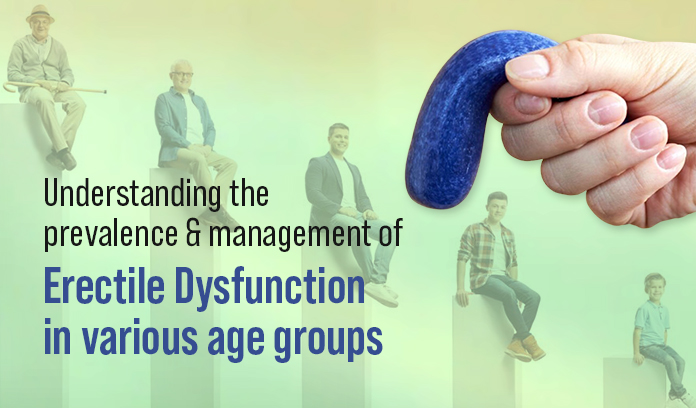Erectile dysfunction is a common issue that affects men of all ages, although the prevalence and treatment may vary depending on the different age groups. It is important to understand the factors that contribute to ED in different age groups to ensure appropriate treatments, diagnosis, and support. In this blog, we will explore the prevalence and management strategies of ED in various age groups.
Younger Men
Contrary to popular belief, ED can affect younger men too. Psychological factors such as stress, performance anxiety, body image concerns, and relationship problems can often play a significant role in causing ED in younger men. Certain lifestyle choices can also contribute to ED such as excessive alcohol, and smoking. Management strategies involve addressing the underlying psychological issues, adopting a healthy lifestyle, and taking care of your diet.
Middle-Aged Men
Men aged between 40 and 60 years old, may experience ED due to the combination factors of both psychological and physical. Hormonal imbalances such as a decrease in testosterone levels, can also lead to ED. Some diseases that become more prevalent in this age group such as diabetes, hypertension, and cardiovascular disease can affect ED. Management involves lifestyle modification, managing underlying health conditions, counseling, and medications.
Elderly Men
ED becomes more common as people age. ED in elderly men is frequently linked with physiological changes brought on by aging and the presence of chronic medical disorders. Vascular conditions, such as reduced blood flow to the penis, and nerve damage are common reasons. Additionally, several medications used to treat other medical issues can significantly contribute to ED. Addressing underlying health problems, improving medication efficacy, and using vacuum erection devices or penile implants are some of the management strategies. Understand The Early Signs and Symptoms of Erectile Dysfunction.
Conclusion
Understanding the prevalence and management of ED in various age groups can help healthcare providers give appropriate advice and treatments to address this condition. Younger men can benefit from lifestyle changes and psychological support, while middle-aged men often require a combination of both medical intervention and lifestyle modification. In elderly men, managing underlying health conditions and treatments might be necessary. And so, it is always necessary to consult a healthcare professional for an effective and personalized treatment plan.

